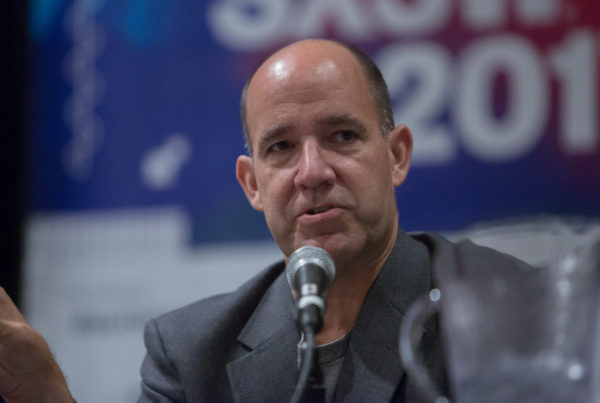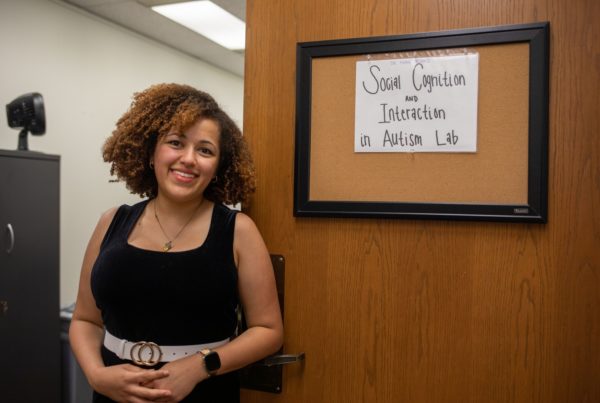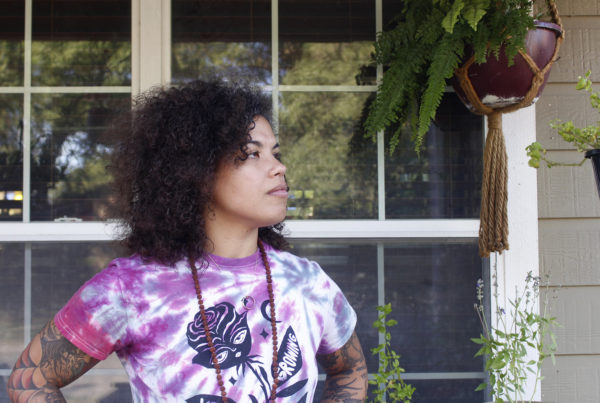Frances “Sissy” Farenthold passed away on Sunday at the age of 94. In the early 1970s, the Corpus Christi native made waves as a member of the Texas Legislature, fighting corruption that reached as high as the House speaker’s office. She waged two unlikely campaigns for Texas governor, running as a progressive. Farenthold was also on a short list for the 1972 Democratic vice presidential nomination. She remained an outspoken activist for women’s rights and other causes throughout her long life.
Lise Olsen is a reporter and editor for The Texas Observer. She interviewed Farenthold this summer about what the one-time activist believed was ongoing corruption in state government. Olsen shared her findings with Texas Standard.
Listen to the interview above or read the transcript below to learn more about Frances Farenthold’s career and legacy.
This transcript has been edited lightly for clarity:
Texas Standard: Could you tell us a little bit about the sort of character Sissy Farenthold was in the Texas Legislature?
Lise Olsen: She was, at the time, a very unusual figure. There was no other woman in the House of Representatives. She was a mother. She was extremely outspoken, but yet also retiring and shy in some ways. And she was a real firebrand when it came to ethics and calling out people she thought were doing the wrong thing.
I read in your piece for The Texas Observer that back when she was a graduate of Vassar College, she earned the nickname “the barefoot debutante.” What was that about?
She was, from a very young age, very outspoken, even as, like, a 5 year old, she would question things. When she came home from break from Vassar – she’s from a very wealthy family, several generations in Texas – she was invited to a debutante event. She went in a sari and bare feet. And the event was covered by the Corpus [Christi] paper, who then dubbed her “the barefoot debutante.” It was one of the nicknames that stuck. Later on, Molly Ivins called her “the melancholy rebel.”
Could you tell us about the “dirty 30?“
She went to the Legislature because she was fighting originally for civil rights and for better education for children. But when she got there, she confronted, immediately, a couple of major scandals. The first one involved the land commissioner, who she got denounced formally in a resolution on the House floor, and he lost the election.
The next year she came back. There’s a huge scandal brewing in Houston revolving around a banker. [It was called] the Sharpstown scandal. And it eventually took down the speaker of the House and involved friends of the governor’s.
Sissy Farenthold was really the first person to confront the speaker face to face. He was a very powerful kingmaker. She organized, quietly, some other members to support her. She learned of an obscure provision in the Texas Constitution via one of her staff members that allowed her to call for a formal investigation. She stood up on the floor and faced [the speaker] down. He told her to sit down and “be quiet Mrs. Farenthold.” she refused. The people who voted for that resolution were nicknamed the “Dirty Thirty Bastards.” She told me in our interview that she and the others got rid of the Bastards part and kept the Dirty Thirty. There was a big scandal statewide and many of those people were prosecuted,
And after that, there were a lot of ethics reforms in the ’70s that were pushed through by advocates.
Sissy Farenthold didn’t remain in office, but she did remain active on issues. In fact, you spoke with her back in early August, and she had a lot to say about current politics, too, especially the power-grid outage?
Yes, I went to see her because I was writing about Texas ethics. I just did an investigation of how the ethics investigations in the state aren’t working very well. And a lawyer said, “You know, Sissy Farenthold, even in her ’90s, is still fired up about this. You should go talk to her.” And I did. And she said to me, “You know, I think other people should stand up the way I did and confront the kinds of corruption that we have today.” She talked specifically about Attorney General Paxton. She also talked about ERCOT; she felt that was a case of the governor’s appointees not doing their job and that the Legislature and others should stand up and confront that directly as she had.
What is Farenthold’s legacy as you see it?
I see it as a remarkable, remarkable example of how someone who stands up for what is right can make a difference, not necessarily in political office. But her message resonates still today, and I think that’s a powerful legacy.














